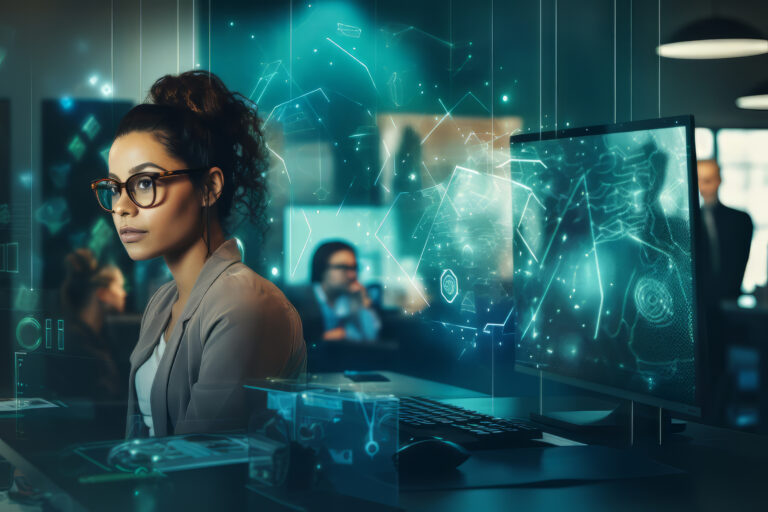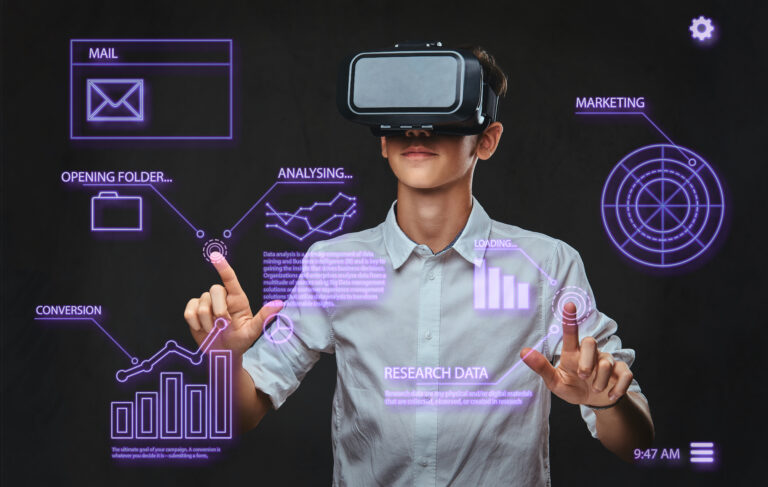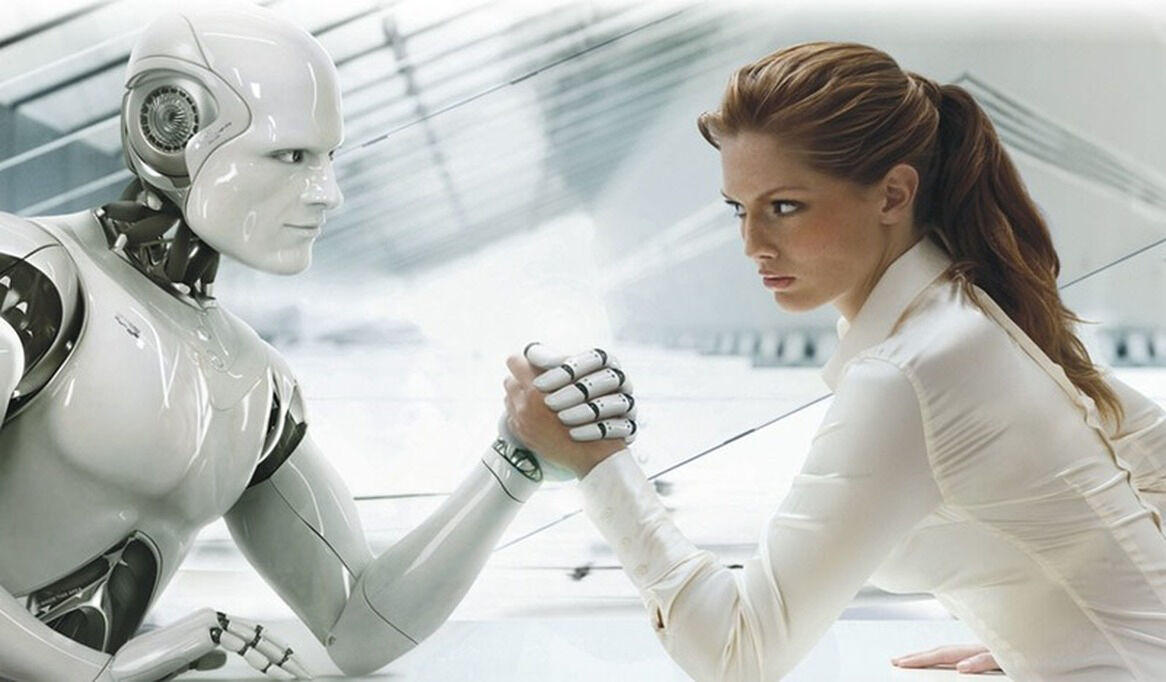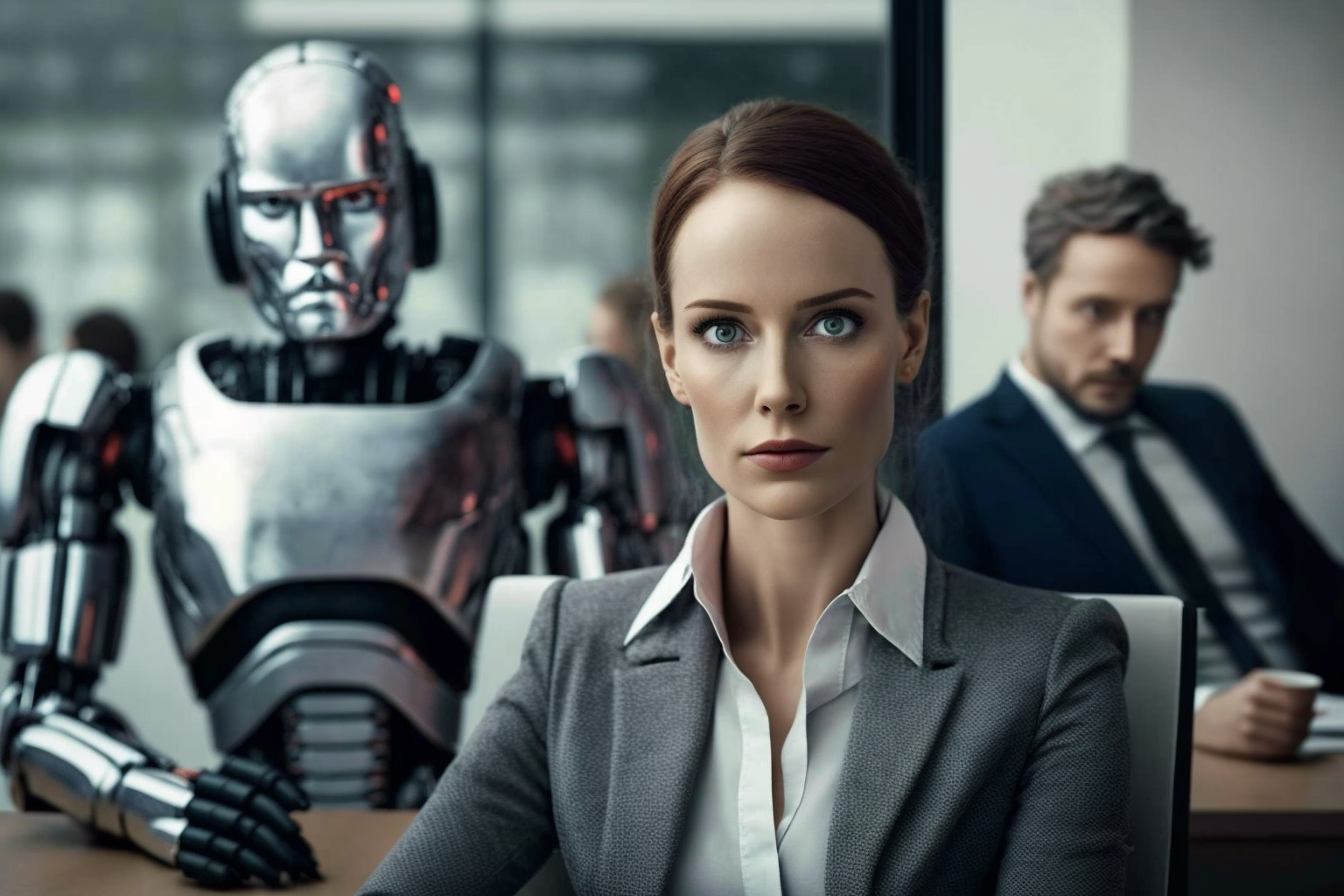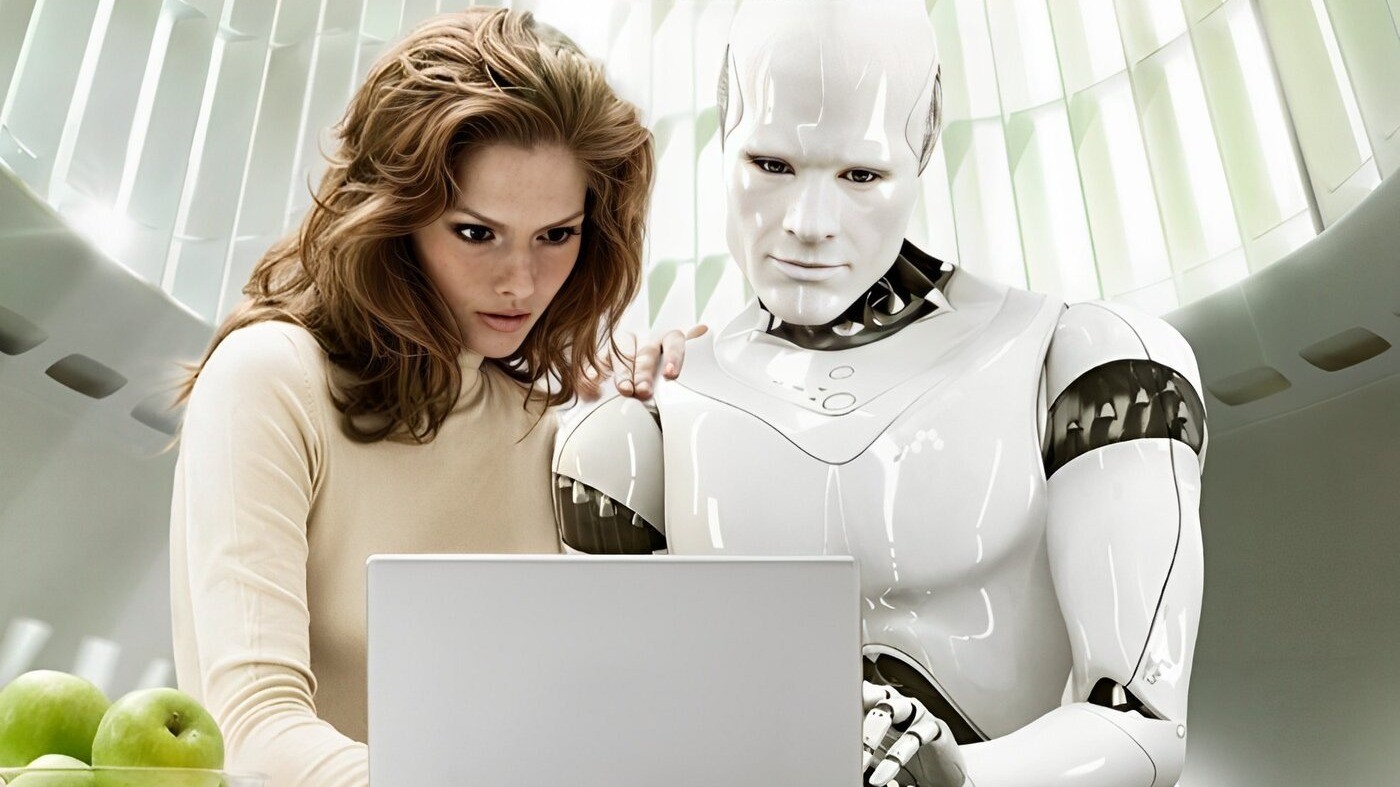We live in a world that is constantly changing, and few topics generate as much passion, fear, and excitement as Artificial Intelligence (AI) . Amidst the heated debates, sensational headlines, and revolutionary promises, a fundamental question arises: does AI represent the end of humanity or the greatest opportunity for our future? This article explores both sides of the coin, offering an in-depth analysis of the risks and possibilities that this technology brings to our society.
The Current Landscape of Artificial Intelligence
In recent decades, Artificial Intelligence has gone from being a theoretical concept to a reality that permeates practically all areas of knowledge. From algorithms that learn from data to systems capable of making decisions in fractions of a second, AI is present in:
- Industry and Manufacturing: Robots and automated systems are revolutionizing production, increasing efficiency and reducing errors.
- Healthcare: AI- assisted diagnostic tools enable more accurate analysis, accelerating disease treatment.
- Finance: Machine learning algorithms help detect fraud, predict market trends, and personalize services for customers.
- Education: Adaptive learning platforms use AI to create personalized learning experiences tailored to the needs of each student.
- Entertainment and Communication: Social networks, streaming and search engines use algorithms to recommend content that captures our attention.
This impressive expansion demonstrates that AI is not just a tool, but a transformative force that is reshaping the world we live in. However, this same transformative capacity raises fears about its impact on the future of humanity.
The Dark Side: Existential Threats and Risks
Many critics argue that AI could pose an unprecedented threat to human existence itself. Some of the main arguments in this line of thinking include:
1. Mass Replacement and Technological Unemployment
As automated systems become more sophisticated, there are growing concerns that replacing human roles could lead to mass unemployment . Jobs that once required specialized skills can now be performed by algorithms, leading to:
- Economic Challenges: The concentration of wealth and the widening of inequalities may intensify if the transition to an automated market is not managed responsibly.
- Transforming Workplace Relations: The role of the worker may be redefined, requiring continuous reskilling and a greater focus on skills that machines cannot replicate, such as creativity and empathy .
2. Existential Risks and the Possibility of a Dystopian Scenario
More extreme scenarios, popularized by science fiction, suggest that AI could one day acquire a level of autonomy that would lead to machines taking over humanity. While many of these scenarios seem unlikely, some experts warn of the following risks:
- Autonomous Decisions and Unexpected Failures: AI systems operating without human supervision can make erroneous or biased decisions, with catastrophic consequences.
- Autonomous Weapons: The development of AI- based weapons could lead to conflicts in which machines make lethal decisions without human intervention, increasing the risk of unprecedented wars.
- Loss of Control: The possibility of highly complex and interconnected systems creates the risk that, at some point, we may lose control over critical processes, affecting everything from infrastructure to global security.
3. Ethical and Social Impacts
In addition to practical risks, the expansion of AI raises profound ethical questions, such as:
- Privacy and Manipulation: Algorithms that collect and analyze personal data can be used to manipulate behaviors and opinions, undermining individual autonomy.
- Social Inequality: Unequal access to AI technologies can deepen socioeconomic disparities, creating an even greater divide between those who have and those who have not access to knowledge and innovation.
The Big Opportunity: A Future Reimagined by AI
On the other hand, Artificial Intelligence offers a range of opportunities that, if well explored, can transform humanity for the better. Rather than being seen as a threat, AI can be the key to solving some of the most challenging problems of our time.
1. Innovation and Technological Progress
The ability to process huge volumes of data and identify complex patterns paves the way for unprecedented innovations. Some of the areas that can benefit significantly include:
- Personalized Medicine: The analysis of genomic and health data can lead to tailored treatments, revolutionizing the way we take care of our health.
- Environmental Sustainability: AI systems can optimize the use of natural resources, improve waste management, and help create smart, sustainable cities.
- Innovative Education: AI- powered learning platforms can deliver adaptive learning experiences, democratizing access to quality education worldwide.
2. Increased Productivity and Efficiency
In the corporate environment, AI is already transforming the way companies operate, contributing to:
- Process Optimization: Automation of repetitive tasks and predictive analysis help reduce costs and increase operational efficiency.
- Data-Driven Decisions: Advanced algorithms enable companies to make more informed decisions, improving competitiveness and the ability to innovate.
- Creation of New Markets: The integration of AI in various sectors creates opportunities for new professions and businesses, driving economic growth and job creation.
3. Human Empowerment and the Role of Creativity
While automation can take over repetitive tasks, intrinsically human skills such as creativity , empathy , and intuition remain irreplaceable. In this sense, AI can be seen as an ally that enhances human talent:
- Human-Machine Collaboration: The synergy between AI and human capabilities can lead to innovative solutions that would be impossible to achieve alone.
- Access to Information: With AI , knowledge becomes more accessible and personalized, allowing people to learn and develop according to their needs and interests.
- Stimulating Innovation: By freeing professionals from mechanical tasks, AI allows them to focus on strategic and creative activities, fostering an environment of constant innovation.
The Ethical Debate and the Path to a Balanced Future
Given the risks and opportunities presented, it is imperative that society engages in an ethical and regulatory debate on the use of Artificial Intelligence . Key questions include:
- Regulation and Governance: It is urgent to develop legal frameworks that guarantee the ethical use of AI , protecting privacy, security and individual rights.
- Transparency and Accountability: Companies and governments need to be transparent about their use of algorithms and accountable for their consequences, ensuring that technology is used for the common good.
- Education and Training: Investing in education and training programs is essential to prepare the population for the changes that AI will bring, minimizing negative impacts and maximizing benefits.
The Hybrid Future: A New Era of Collaboration
Rather than seeing AI as a threat that will wipe out humanity, many experts advocate a scenario where humans and machines work together to build a better future. This hybrid model is based on:
- Skills Integration: While algorithms take care of complex analysis and data processing, humans remain in charge of decisions that require creativity and critical judgment .
- Sustainable Development: Collaboration between AI and humans could be key to solving major global challenges, from the climate crisis to social inequality.
- Constant Innovation: In a world where technology advances at a rapid pace, the ability to adapt and learn continuously will be the main competitive advantage. The future belongs to those who constantly reinvent themselves.
The Way Forward
The question “Artificial Intelligence: The End of Humanity or the Greatest Opportunity in History?” does not have a simple answer. The truth is that AI carries with it both significant risks and transformative potential. What will determine our future is how we choose to use this powerful tool.
For Artificial Intelligence to become an opportunity and not a threat, it is essential that:
- Governments, businesses and civil society come together to create a regulatory environment that promotes ethics, transparency and accountability.
- Professionals and citizens invest in education and train themselves to deal with changes, acquiring new skills and adapting to a constantly evolving job market.
- Collaboration between humans and machines should be seen not as a competition, but as a partnership that brings out the best in both, enabling innovative solutions to the most complex challenges of our time.
Ultimately, the choice is ours: we can allow fear and misinformation to determine the course of AI , or we can take control of the future and transform technology into a tool for progress, innovation, and social justice.
The future of humanity is not written by algorithms, but by our ability to decide, learn and evolve. If we see AI as an ally and invest in ethical and inclusive development, we will be paving the way for the greatest opportunity in history. Otherwise, we run the risk of falling into a dystopian scenario, where technology surpasses human control and exacerbates inequalities.
Therefore, the debate on Artificial Intelligence should not be seen only as a technological issue, but as an existential challenge that calls us to rethink our priorities, values and the way we relate to the world.
A Call to Action
The transformation that Artificial Intelligence brings to our world is inevitable. It is up to each of us to decide how we want this revolution to impact our lives. Here are some essential steps to prepare for and actively participate in this change:
- Get informed and educated: Seek out reliable sources, participate in courses and debates about AI and its implications. Knowledge is the best weapon against fear and manipulation.
- Adopt a Critical Stance: Question the information that reaches you and seek to understand the mechanisms behind the technologies we use daily.
- Join the conversation: Engage in discussions about the ethics, regulation, and future of AI . Your voice is essential to shaping policies that ensure fair and responsible use of technology.
- Invest in Training: Be prepared for changes in the job market. Develop skills that complement AI , such as creativity, critical thinking, and empathy.
- Contribute to a Better Future: Support initiatives that promote digital inclusion, transparency, and the ethical use of AI . Every action, no matter how small, contributes to a future where technology serves the common good.
Final Conclusion
Artificial Intelligence could be the catalyst that propels humanity into a new era of prosperity or the instrument that precipitates our decline. The answer to the question “ The End of Humanity or the Greatest Opportunity in History? ” depends directly on the choices we make today.
By understanding both the risks and the potential, we give ourselves the chance to shape a future in which technology and humanity walk together, in harmony, to build a more just, sustainable and innovative world.
The future is not written; it is built by our actions, decisions and commitment to ethical and conscious development. May we use Artificial Intelligence not as an instrument of oppression, but as a powerful tool to transform challenges into opportunities and promote the progress of all humanity.
Share this article, discuss the topic and, above all, reflect on the role you want to play in this technological revolution. The decision is yours: will you allow fear to dictate the course of the future or will you empower yourself to transform Artificial Intelligence into the greatest opportunity in history?
I hope this content inspires you to reflect and take action. The debate about the impact of AI is essential for us to build a better future for everyone. Technology is constantly evolving, and our role is to stay ahead of the curve, prepared to face the challenges and embrace the opportunities it offers us.


